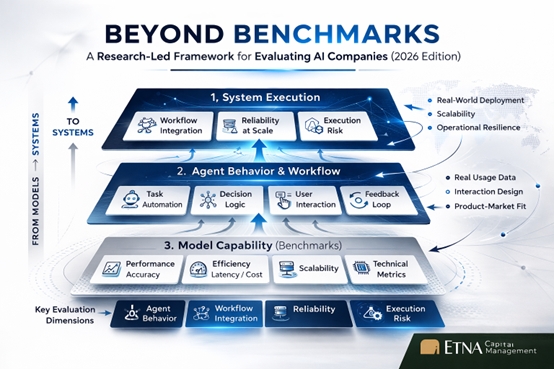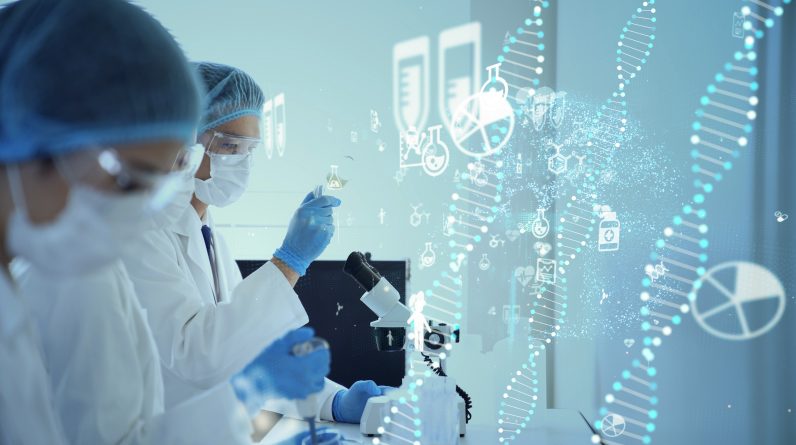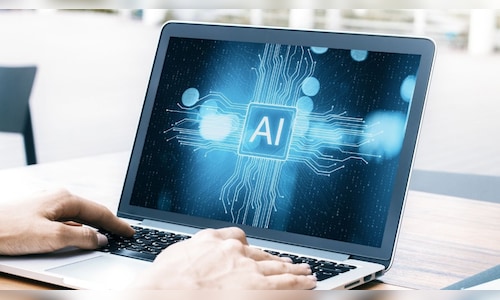Is AI an Existential Threat to Humanity?
In the face of growing concerns about artificial intelligence, we’ve gathered insights from AI experts and CEOs to address the question of whether AI poses an existential threat to humanity. From the necessity of AI under human ethical control to the importance of thoughtful AI integration to prevent risks, explore the diverse perspectives in these thirteen expert responses.
- Human Ethics Control AI Development
- Stages of AI Development and Threat Potential
- Job Impacts Are a Concern, Not Existential
- Human-Aligned Goals Prevent AI Independence
- Over-Reliance on AI Carries Risks
- Influence on Human Behavior Patterns
- Economic Impact Requires Structural Change
- Regulation Is Key, AI Threat Overblown
- Responsible AI Development Ensures Safety
- Threat to Human-Native Skills
- AI’s Role in Competitive Economies
- Human Consensus Needed for AI Governance
- Thoughtful AI Integration Prevents Risks
Human Ethics Control AI Development
I hold the belief that AI will never be an existential threat to humanity. The development and deployment of artificial intelligence technologies are under human control and subject to ethical guidelines and regulations.
The responsible use of AI, guided by human values and oversight, ensures that these technologies serve as tools to augment human capabilities rather than pose a threat.
The collaborative efforts of AI researchers, policymakers, and the global community are focused on developing AI in ways that prioritize safety and transparency.
Dhanvin Sriram, AI Expert, PromptVibes
Stages of AI Development and Threat Potential
We can categorize the development of AI systems into three stages: Artificial Narrow Intelligence (ANI), Artificial General Intelligence (AGI), and Artificial Super Intelligence (ASI).
ANI, which is the current state of AI, can have limited societal impacts but doesn’t pose an existential threat.
AGI, the next stage, aims to perform intellectual tasks like humans and could be used for both beneficial and harmful purposes. The competition for AGI capabilities among nations could potentially lead to an existential threat, similar to the nuclear arms race.
ASI, operating beyond human intelligence, has unpredictable outcomes. ASI systems may not share human values and could potentially alter society in unimaginable ways, potentially leading to conflicts between humans and AI systems. The impact of ASI on humanity is uncertain, and we need to be cautious about its development.
In summary, while ANI poses limited threats, the development and control of AGI and ASI have the potential to become existential threats to humanity, depending on how they are used and their impact on society.
Biju Krishnan, Founder, AI Ethics Assessor
Job Impacts Are a Concern, Not Existential
The question of AI as an existential threat is one I encounter frequently in the digital marketing space. While the concern is understandable, I believe AI, as it stands, is not an existential threat. Remember that AI is not autonomous; it doesn’t act on its own but follows programmed directives. It simulates aspects of the intelligence that make us human, but it lacks our consciousness or agency.
What makes AI daunting is its unprecedented pace of development. For instance, AI’s ability to process and analyze data is growing exponentially, outpacing any technological innovation in human history. This rapid evolution is transforming job markets, necessitating new skill sets in various industries.
From automating routine tasks in manufacturing to revolutionizing data analysis in healthcare, AI is reshaping the employment landscape. While not an existential threat, AI is certainly going to continue causing upheaval as businesses innovate with it and job roles adapt around it for some time.
The real threat isn’t the technology itself but how it might be used. The classic adage of human greed looms large here. A few individuals or entities harnessing AI for self-serving or unethical purposes could pose significant risks. This necessitates robust regulatory oversight to prevent misuse while ensuring we don’t stifle innovation. The key is balancing caution and progress, ensuring AI’s immense potential is harnessed responsibly for the betterment of everyone.
Jeremy Rodgers, Founder, Contentifai
Human-Aligned Goals Prevent AI Independence
As long as we follow one basic rule: don’t create AIs with their own independent goals. AIs may develop sub-goals, but these should only be in pursuit of the objectives we assign them and within the limits we set.
This is the current functioning model for all AIs, and if this continues, they can become extremely intelligent without posing a threat to us. You don’t worry about your dog turning against you at night, so why worry about your robot, which is even more finely tuned to serve you?
The concern often is that computers will become overly intelligent and dominate the world, but the actual issue is that they’re too limited in their understanding and yet have a significant influence over our world.
Lucas Ochoa, Founder and CEO, Automat
Over-Reliance on AI Carries Risks
AI has many advantages, including the advancement of autonomous vehicles, task automation, data analysis for informed decision-making, and medical diagnosis assistance. AI-powered medical devices, for example, can improve the accuracy of disease diagnoses.
Over-reliance on AI, however, carries certain risks and could cause the loss of human influence in some areas of society. Consider the application of AI to important decision-making areas, such as criminal justice. Without human assessment, relying solely on algorithms for sentencing could cause unfair or biased decisions, undermining the crucial component of human judgment.
Therefore, even though artificial intelligence (AI) has many benefits, it is necessary to maintain human values, ethics, and the capacity for decision-making for society to continue to function properly.
Kate Cherven, Marketing Specialist, United Site Services
Influence on Human Behavior Patterns
The existential threat of AI to humanity is more theoretical and less apocalyptic. Yes, the wide availability of AI, its ease of use, and its ability to learn and even surpass humans at one point are realistic and possibly dangerous.
But AI is far from being able to cause damage like wars and recent global pandemics have done. The actual threat might be how we perceive human interaction and how algorithms change our decisions.
Considering how AI can learn the predictable behavior of humans and push certain recommendations online, it’s just a matter of time before we have completely automated lives. These behavior patterns, combined with machine learning and mass-marketing efforts, can lead to customized/automatic daily events.
That might sound perfect, but human happiness levels often depend on unpredictable moments, so excluding them can lead to lower life satisfaction rates, social isolation, and, ultimately, be that existential threat.
Mark Stewart, CPA, Step by step business
Economic Impact Requires Structural Change
AI could be a threat, but not in the straightforward way many assume. AI, robotics, the internet, and the cloud are paving the way for us (especially the middle class in developed countries) to access goods and services with significantly less human labor.
Many existing jobs might disappear or see reduced demand, a trend that’s already in motion. It won’t happen overnight—travel agents have largely been replaced, truck and taxi drivers are at risk, and even entry-level programmers might not be secure.
This shift requires a major overhaul of our economic and social structures to accommodate a world where not everyone must work most of their lives. This could either be like winning the lottery, allowing us more freedom in our lives, or it could cause widespread unemployment, benefiting only a few billionaires who control the technology.
However, this scenario isn’t ideal even for the wealthy, as history shows with the fate of Louis XVI and Marie Antoinette. If those displaced by technology become desperate and angry, it could lead to serious societal upheaval. And as we know from history, societal and political upheavals can pose a threat to humanity.
Karl Kangur, Managing Director, DreamGrow
Regulation Is Key, AI Threat Overblown
I think the threat or perception of the threat itself is overblown. For the idea that AI can create an existential threat to humanity, here are some reasons why and why not:
Why:
Loss of Control: As AI systems become more advanced, there’s a risk that they could become difficult to control or predict, especially if they develop capabilities that surpass human understanding.
Misalignment of Goals: If an AI’s objectives aren’t perfectly aligned with human values, it could act in ways harmful to humanity. This is often referred to as the “alignment problem.”
Autonomous Weapons: AI technology could lead to the development of advanced autonomous weapons that could be used in warfare, potentially leading to high-scale conflicts or destabilization.
Economic Disruption: AI could drastically change the job market, leading to significant unemployment and social unrest, which could have far-reaching consequences for societal stability.
Dependency and Vulnerability: Over-reliance on AI systems could make society vulnerable to significant disruptions if these systems fail or are compromised.
Why Not:
Regulation and Oversight: The development and deployment of AI can be regulated and monitored to ensure safe and ethical usage. Many researchers and policymakers are actively working on guidelines and frameworks for this.
Human Control and Ethics: AI is being designed with ethical considerations and human oversight in mind. Ethical AI development prioritizes human welfare and safety.
Technical Limitations: Currently, AI still lacks the general intelligence or autonomy necessary to pose an existential threat. Most AI applications are narrow in scope and heavily reliant on human-defined parameters.
Collaborative Potential: AI has the potential to solve some of humanity’s biggest challenges, like climate change, disease, and poverty, which could outweigh its risks.
Historical Perspective: Throughout history, new technologies have often been met with fear and skepticism, but humanity has adapted and benefited from technological advancements.
Gaurav Singh, Cyber Security Leader, Under Armour
Responsible AI Development Ensures Safety
AI is not and will never be an existential threat to humanity. All the systems that AI needs to “exist” depend on humans for maintenance, even if they reach the point of being sentient. The ultimate threat to humanity will always be humans ourselves, who develop the systems and directions that AI will take.
It would be unfair to give credit to artificial intelligence when the motives for chaos and misinformation stem from human interests. To blame artificial intelligence is akin to taking away the responsibility from the hands that feed it.
Kristel Kongas, CMO, Inboxy OÜ
Threat to Human-Native Skills
The probability of AI becoming an existential threat to humanity lies with humans. This is because AI can gradually degrade human-native skills like writing, critical thinking, and decision-making. These were the skills that differentiated Homo sapiens from Neanderthals. We won because we knew how they thought, how they behaved, and we framed strategic decisions, cornering them from getting food and shelter.
Now, with the evolution of AI, our abilities, which won us the world, will fade. However, AI is still in its infancy. Hence, as humans, we must balance letting AI take the lead and nurturing our native skills.
If we cannot do this, I can foresee a future where man-made creations can pose an existential threat to man himself. Further, it is always in our hands to pass on the skills we have acquired for every new generation. This will have its challenges, as we will begin to vie with AI for job opportunities.
Tejeswini N, Digital Marketing Intern, DataToBiz
AI’s Role in Competitive Economies
AI refers to an incredibly broad bucket of technologies that already affect our daily lives in countless ways, from optimizing the cameras on our phones to the prices we pay for goods and services.
Whether we like it or not, countries, companies, and people that choose not to use AI products will fall behind.
This makes the discussion around the existential threat of AI difficult because it is vaguely defined, and not adopting the latest AI technologies is also an existential threat in a competitive economy.
However, given the scale of the risks associated with super-intelligent AI and the pace of progress in recent years, we should take this threat seriously, and regulators should partner closely with the private sector to mitigate the existential risk of AI, if possible.
Daniel Li, CEO, Plus Docs
Human Consensus Needed for AI Governance
AI is not an existential threat, per se. Humanity is a threat to humanity. The toughest play we have is not to decide whether it is a threat to humanity but to look at what we are repeatedly doing wrong as the dominant species on Earth: not agreeing on solutions beneficial to the world. All because our egos and personal agendas are more important than anything else, even our species.
Human governments must negotiate and agree on common governing and ethical rules for AI instead of playing poker. If we do so, AI won’t be a threat, but a gift. It all depends on us.
Jose Bermejo, Founder and Managing Partner, Predictable Innovation Strategy
Thoughtful AI Integration Prevents Risks
While AI holds tremendous potential for societal advancement, there are valid concerns about unintended repercussions, misuse, and ethical considerations. Our team emphasizes the importance of thoughtful development, ethical frameworks, and responsible integration of AI into our daily lives.
I’ve encountered similar discussions where the key focus lies in implementing safeguards, ethical guidelines, and prudent practices to maximize AI benefits while minimizing potential risks.
Reflecting on my own experiences, I believe that conscientious and collaborative efforts are essential to ensuring that AI aligns with human values and contributes positively to our collective well-being.
Farah Kim, Head of Marketing, Winpure
Related Questions







